21st century skills and competencies
by Johannah Bernstein

1. How to equip Pearson scholars with the 21st century competencies in order to be impactful changemakers for a peaceful and sustainable future?
2. The workforces of the future (and even our present day) are globalizing due to the Internet. It is now the norm to communicate with and market for global demographics instantaneously and effectively. An organization’s business partners are now halfway across the world, and yet they meet and work with each other every day! The ability to collaborate and communicate in these types of situations is essential for our students’ success in the future.
3. Analytical thinkers see data and information in many different dimensions, and from multiple angles. They are adept at conceptualization, organization and classification, and knowledge synthesis...https://globaldigitalcitizen.org/critical-21st-century-skills-every-student-needs
4. Cross-cultural competency (and celebration of difference)
4.1. How does Pearson empower students to operate/function/thrive in different cultural settings
5. Computational thinking
6. New Media Literacy/FLUENCY
6.1. MEDIA FLUENCY Communication is a broad term that incorporates multi-faceted levels of interaction and imparting information to others. Students love to communicate using technology, and this is an essential part of Media Fluency. But it’s more than just being able to effectively use digital media—it’s about personal interactions as well.
7. Transdisciplinarity
7.1. How does Pearson build literacy and promote ability to understand concepts across multiple disciplines
8. Design mindset
8.1. How does Pearson promote an innovation process to find solutions and solves problems in a user-centered context.
9. Cognitive load management
9.1. How does Pearson promote ability to discern the importance of information and understand how to maximize cognitive functioning using variety of tools and techniques?
10. real and virtual collaboration
11. Analytic thinking/INFORMATION FLUENCY
11.1. Tasks that require linear thinking and routine cognitive work are being outsourced more and more. So it’s essential to guide students towards being able to perform analytic thinking, as it is crucial to their ability to succeed in life after the classroom. Analytic thinking is a significant part of what makes up Information Fluency. https://globaldigitalcitizen.org/critical-21st-century-skills-every-student-needs
12. MEDIA FLUENCY Communication is a broad term that incorporates multi-faceted levels of interaction and imparting information to others. Students love to communicate using technology, and this is an essential part of Media Fluency. But it’s more than just being able to effectively use digital media—it’s about personal interactions as well.
13. ETHICS, ACTION AND ACCOUNTABILITY
14. Sense-making
14.1. How is Pearson teaching this skill/competency? how to determine the deeper meanig or significance of what is being expressed
14.2. How to improve?
15. Social and Emotional Intelligence
15.1. Courage to face challenging circumstances
15.2. Enthusiasm
15.3. Kindness
15.4. Activelistening
15.5. Authenticity
15.6. Sense of "true north"
15.7. Curiosity
15.8. Compassion and service
15.9. Perserverence
15.10. Empathy
15.11. From hero to host
15.12. Open-heartedness
15.13. Idealism
15.14. Capacity to follow
15.15. Personal responsibility and integrity
15.16. Mutual responsibility and respect
15.17. Personal challenge
15.18. Action and personal example
16. SOLUTION FLUENCY: Novel and Adaptive Thinking
16.1. In the future, complex problems that we can’t even conceive right now will be everywhere. As society advances, so will the complexity of its manageable conflicts. The more we focus on developing students who can devise effective solutions to real-world problems, the more successful those students will become. This is what Solution Fluency is all about—solving complex problems effectively in real time using unique and carefully-designed solutions.https://globaldigitalcitizen.org/critical-21st-century-skills-every-student-needs
16.2. dsdfsdfsdf
16.3. Higher order thinking and sound reasoning
17. The New Global Risk Landscape
18. TOK+
18.1. asdfasdf
18.2. asdasfsd
18.3. sfgsdfgsd
18.4. dasdfasd
18.5. vcvzxcvxcCritical thinking
18.6. Self care
18.7. Health and welleing
18.8. Change management
18.9. Empathy through trying and using skills to identify the thinking process and ethos an dintellegience across from
18.10. adaptivilit
18.11. Resilience
18.12. Creativity
18.13. OPenmindendess
18.14. Community sense and ethos
18.15. Hukmility
18.16. Ability to understand the problem
18.17. Compassion
18.18. Resourcefulness
18.19. Reflection, critical reflection
18.20. Critical ability to understand at a theoreticl level the common ancestor of all these crises, so that our understanding is not siloed
18.21. Solidarty so any skill that doesnt siply require a person to feel like they have to solve the problem alone
18.22. Information selection, critical thinking, in terms of -- information influecy
18.23. Reflection action and skilfull inquiry to really understand the problem
18.24. Strategy for nimble decision making that engage many actors. So in terms of the skills that we have intercultural communication, group decision to ensure shared by-in
18.25. Interconnectedness and understanding the eclogy of how each crises is interlinked, holistic understanding
18.26. Creativity, adaptability and kindesns. We want our students to care
18.27. Solidarity, and team building and partnerships so they know they cannot do this on their own
18.28. Social management bk the draw and distraction that comes from cybernetic connection, we are relentless social creatures and one of the biggest distractiosn when we are on the internet , but we must develop skills to manage the social groups. Social i
18.29. Communication skills
18.30. shift locus of control towards themselves, AGENCY
18.31. How can we make a paradigm shift-- from understanding the theory, putting emotions into equation......
18.32. Ability to learn..
18.33. Oprn-,ofmrmfrddd
18.34. Cultivate the love to learn
18.35. Many of these are relevant to initial experience, you wont have epeirnce if you are not empathic
18.36. Transfer knowledge is part of th cycle:
18.37. Solutoins: willngess and capacity to learn, experiment and fail
18.38. Fail again, fail better, Samuel Bckett


